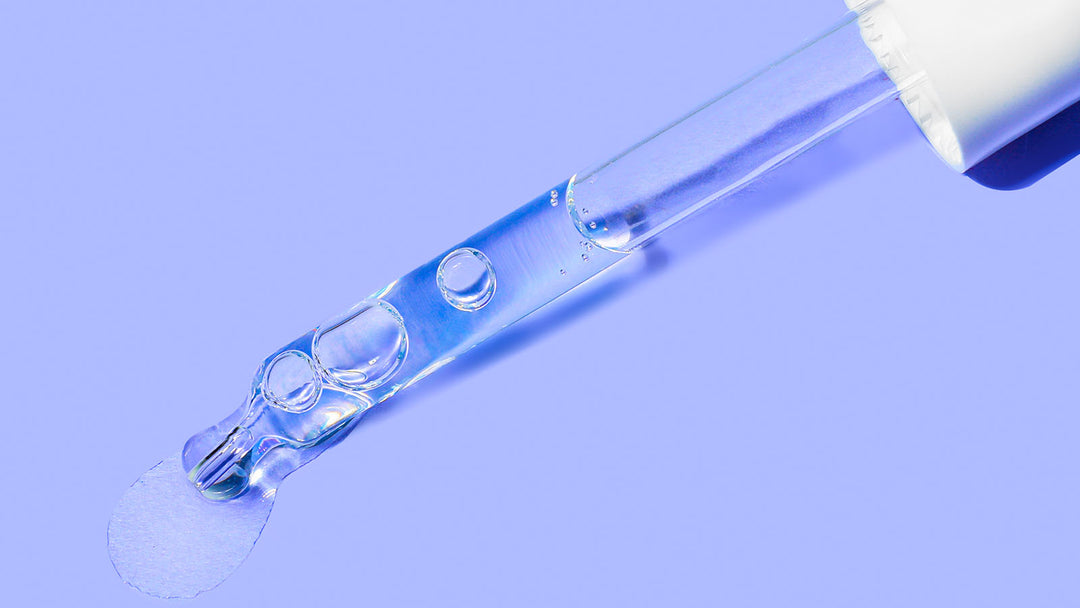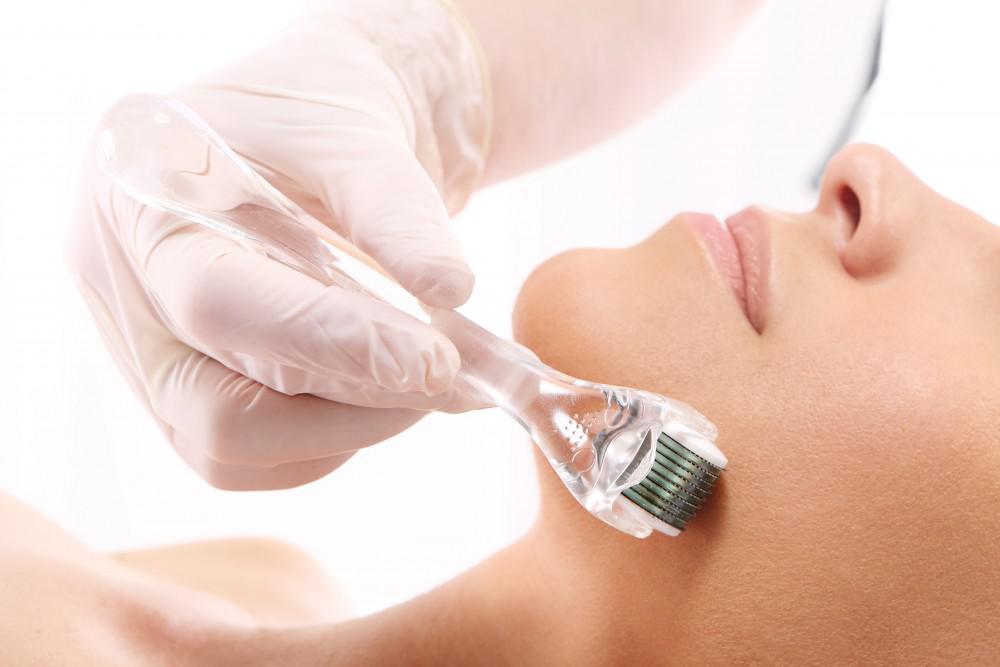What Is Hyaluronic Acid and How Can It Improve Your Skin?
Hyaluronic acid is a popular ingredient in skincare, known for its hydrating properties. It is beneficial for all skin types, including oily and acne-prone. This molecule works as a humectant, attracting moisture from the environment and into the skin. When applied topically, it can hold up to 1000 times its weight in water, providing relief to dehydrated skin. Just one gram of hyaluronic acid can retain up to six liters of water.
While its name might suggest it acts as an exfoliating acid, it actually works in a very different way. Hyaluronic acid is a gentle ingredient that helps to boost the skin’s moisture levels, prevent dryness, and soothe skin. It is a popular choice for people of all skin types but is particularly beneficial for those with dry and dehydrated skin.
How Can Hyaluronic Acid Improve Your Skin?

In winter, hyaluronic acid is particularly useful due to the dehydrating effects of central heating and cold weather. Additionally, hot beverages like coffee can have a dehydrating effect as they are natural diuretics. When used with the best moisturizers for dry skin, the effects of hyaluronic acid can improve the skin's appearance, giving it a plump and dewy look.
Furthermore, as we age, our skin naturally loses its hyaluronic acid content, leading to drier and more lined skin. By using a synthetic form of hyaluronic acid topically, it is possible to restore the skin’s moisture levels and prevent further moisture loss.
While hyaluronic acid can be beneficial for all skin types, it is especially effective for older skin that is naturally drier. To see the best results, look for a product that contains a mix of high and low molecular-weight hyaluronic acids, as this will allow the ingredient to penetrate different levels of the skin.
High molecular weight hyaluronic acid will hydrate the surface and upper layers of skin, helping to prevent dehydration and making skin look healthier. Medium molecular weight hyaluronic acid works in the top three layers of skin, filling and smoothing skin and reducing the appearance of fine lines and wrinkles. Low molecular weight hyaluronic acid can penetrate deeper into the skin, hydrating the lower layers, reviving collagen production, and firming skin.
When Should You Apply Hyaluronic Acid?
Hyaluronic acid is best applied in the morning and at night. It can also be used in conjunction with vitamin C serums, as the two ingredients complement each other in terms of hydration, repair, and protection. To see the best results, it is recommended to use hyaluronic acid consistently and to apply it to damp skin after washing or showering.
The Different Types of Hyaluronic Acid

There are three variations of hyaluronic acid used in skin care products: hydrolyzed, sodium, and sodium acetylated.
Hydrolyzed hyaluronic acid is a form of hyaluronic acid that has been fragmented into smaller molecules, allowing it to penetrate the skin. It provides hydration, but not the maximum level of hydration, making it ideal for individuals with oily or combination skin.
Sodium hyaluronate penetrates deeper into the skin for improved results, though its effects are not long-lasting. This form of hyaluronic acid is best for those with normal skin, as it allows for moisture to be absorbed without the need for heavy-duty, long-lasting effects. This type of hyaluronic acid is commonly found in serums.
Sodium acetylated hyaluronate combines the benefits of sodium hyaluronate with longer-lasting effects, making it a suitable choice for those with dry skin, those living in dry climates, or those seeking a product for use during the dry winter months.
Benefits of Using Hyaluronic Acid
The primary benefit of hyaluronic acid is its exceptional ability to hydrate and retain moisture in the skin. Dehydrated skin, which occurs when the top layer of skin lacks adequate water, appears dry, rough, and flaky. Not only does this impact the appearance of the skin, but it also makes it more vulnerable to damage from external and environmental factors, as well as increasing the risk of skin infections.
Hyaluronic acid is beneficial for the skin as it helps maintain an intact skin barrier, which is essential for keeping skin hydrated and healthy. When skin is hydrated, it looks plumper, healthier, and more vibrant, and also appears younger.
As skin aging is often associated with a loss of moisture, hyaluronic acid is crucial in combating and reversing the signs of aging. By attracting and retaining water, hyaluronic acid can refine and restore skin in dry, sunken, or creased areas.
Benefits of Using Hyaluronic Acid After Getting Botox
After getting Botox injections, hyaluronic acid can be used to enhance and prolong the results of the treatment. Here are some potential benefits of using hyaluronic acid after getting Botox:
Hydrates the skin: Hyaluronic acid is a powerful humectant that can attract and retain water molecules in the skin, helping to keep it hydrated and plump. This can be particularly beneficial after getting Botox, which can temporarily weaken the muscles that cause wrinkles and fine lines.
Complements the anti-aging effects of Botox: Botox can help to relax the muscles that cause wrinkles, but it does not address other signs of aging such as dehydration, loss of volume, and texture changes. Hyaluronic acid can help to address these concerns, creating a more comprehensive anti-aging skincare routine.
Enhances skin elasticity: Hyaluronic acid can help to improve skin elasticity, which can be particularly beneficial after getting Botox. Since Botox injections can temporarily weaken the muscles that support the skin, hyaluronic acid can help to keep the skin firm and tight.
Minimizes the risk of side effects: While Botox injections are generally safe, they can sometimes cause side effects such as bruising and swelling. Using hyaluronic acid after getting Botox can help to minimize the risk of these side effects, as it can help to soothe and calm the skin.
Overall, using hyaluronic acid after getting Botox can be a great way to enhance and prolong the results of the treatment, while also addressing other signs of aging and maintaining healthy, hydrated skin. However, it is always best to consult with a licensed skincare professional or dermatologist before combining any skincare treatments.
Is Hyaluronic Acid Safe to Use?
The use of hyaluronic acid on the skin is usually considered safe and does not cause any negative reactions when applied topically. Hyaluronic acid is a natural component in our skin, making it unlikely to cause any problems.
However, when patients experience issues such as rashes with hyaluronic acid-based products, it may be due to another ingredient, like a preservative, rather than the hyaluronic acid itself. Some preservatives, such as parabens, formaldehyde-releasers, and isothiazolinones, can cause irritation.
It's important to note that hyaluronic acid is also used in many injectable fillers, and although the ingredient itself is safe, the procedure can be risky and should only be performed by a doctor certified by the American Board of Dermatology or the American Board of Plastic Surgery.
How Can I Take Hyaluronic Acid?
There are numerous methods for consuming hyaluronic acid, either as a standalone product or in combination with others. Some can be purchased without a prescription, while others require a doctor's prescription or need to be administered by a medical professional.
Consuming hyaluronic acid can be done through several methods, both OTC and with a prescription. You can take it orally in the form of supplements, pills, or liquid that can be mixed with water. Hyaluronic acid applied topically can have benefits for skin health and reducing the appearance of wrinkles.
Eye drops containing hyaluronic acid are also available. For intimate use, hyaluronic acid is a common ingredient in gels, creams, and lubricants for treating vaginal dryness or pain.
Prescription forms of hyaluronic acid include injections into joints for relieving arthritis pain, injections under the skin for restoring shape and appearance, and as a helper in absorbing medications taken through the nose.
Hyaluronic acid can also be used to treat respiratory issues through inhalers or nebulizers. It's important to note that only trained medical professionals should administer injections, and improper use can lead to severe complications.
What to Look for in a Topical Hyaluronic Acid Product?

When choosing a topical product containing hyaluronic acid, there are a few factors to consider to ensure the best results. The ingredient can be found in a variety of skin care products including serums, sheet masks, eye creams, moisturizers, cleansers, and lip treatments.
Firstly, it's important to check for any potential allergens or ingredients that have caused irritation in the past. Additionally, finding a product that contains both hyaluronic acid and vitamin C, such as the Dermalogica BioLumen-C Serum, can enhance the effectiveness of the product.
Next, consider the molecular weight of the product. Products with lower molecular weights, such as 50 kilodaltons, tend to be more effective at penetrating the skin and combatting wrinkles. Most hyaluronic acid products will have a concentration of 1 or 2 percent, but even a 0.1 percent concentration has been shown to increase hydration and elasticity.
Avoid products that contain alcohol, which can have drying effects and counteract the moisturizing benefits of hyaluronic acid. Similarly, it's best to steer clear of products with added fragrances, which can cause irritation and breakouts in people with sensitive skin.
Finally, don't be discouraged by water being listed as the first ingredient. It may seem like it's diluting the product, but in reality, it helps the hyaluronic acid penetrate the skin more effectively. A more water-based product is more likely to penetrate the skin easier than a cream, oil, or gel.
What Foods Contain Hyaluronic Acid?
If you are looking to increase the levels of hyaluronic acid in your body, you can consider adding the following foods to your diet:
- Soy: Foods like tofu, edamame, soy sauce, tamari, and miso contain soy and can help in the production of hyaluronic acid.
- Citrus fruits: Oranges, lemons, and grapefruits contain vitamin C and naringenin, which helps in inhibiting the breakdown of hyaluronic acid.
- Tuber vegetables: Potatoes, sweet potatoes, jicama, and lotus root are rich in carbohydrates and can help in the production of hyaluronic acid.
- Green leafy vegetables: Kale, lettuce, collard greens, bok choy, and spinach are rich in magnesium and aid in the production of hyaluronic acid.
- Nuts and seeds: Nuts and seeds such as almonds, brazil nuts, pine nuts, cashews, pumpkin seeds, and chia seeds are high in magnesium and promote hyaluronic acid synthesis.
- Bone broth: Bone broth made from poultry or beef bones contains hyaluronic acid and collagen, which helps to keep the skin hydrated and healthy.
- Supplements: Supplements containing hyaluronic acid are also available, along with topical hyaluronic acid treatments that work as a moisturizer.
Note: Supplements should not replace a balanced diet, and it's always advisable to consult a healthcare provider before taking any new dietary supplements.
How Else Can I Take Hyaluronic Acid?
There are several ways to incorporate hyaluronic acid into your routine to combat the signs of aging. This can be done through diet, dermal fillers, or topical products. Consuming foods high in HA, such as soy, citrus fruits, tuber vegetables, green leafy veggies, nuts and seeds, and bone broth, can benefit your skin and overall health.
However, to achieve deeper hydration and more effective anti-aging results, dermal fillers that administer HA directly to the skin’s dermis are recommended. Experimentation with different methods may be needed to determine the best approach for you to attain the youthful appearance you desire.
If you're seeking an anti-aging solution with hyaluronic acid, dermal fillers are the most effective option. Schedule a free, no-pressure appointment with our aesthetic treatment specialists at Rejuva Aesthetics & Wellness Center and allow us to assist you in feeling more confident. We provide the finest Botox, facial treatments, and dermal fillers in London to fulfill all of your needs.
Is Hyaluronic Acid Good for Acne?
Hyaluronic acid is primarily used for its ability to hydrate and moisturize the skin, which may be beneficial for those with acne-prone skin. However, it is important to keep in mind that there is limited research on its effectiveness in treating acne specifically. It is best to consult a dermatologist for personalized advice and treatment options.
Does Hyaluronic Acid Work?
Hyaluronic acid has been proven to be effective in certain applications. Its versatility and wide range of uses have made it a popular ingredient in many health and beauty products. Its most common uses are for skin, joint, and eye health. Additionally, extensive scientific research and clinical trials have been conducted to evaluate the efficacy of hyaluronic acid.
When Should I Talk to My Healthcare Provider About Hyaluronic Acid?
It is recommended to consult with a healthcare provider before using hyaluronic acid for any purpose. Your doctor can provide recommendations and information on safe and effective use of hyaluronic acid for specific conditions, including:
- Skin health - for dryness, scarring, stiffness, and skin diseases such as scleroderma and actinic keratosis.
- Eye health - to treat dry eyes.
- Joint health - to relieve arthritis pain or manage soft tissue injuries.
- Wound healing - if wounds are slow to heal.
- Bladder pain - especially if caused by interstitial cystitis.
- Respiratory conditions - for respiratory problems such as asthma.
Your doctor can also help you determine if hyaluronic acid supplements or treatments are appropriate for your individual needs and provide guidance on the best forms of hyaluronic acid for your specific health concern.




